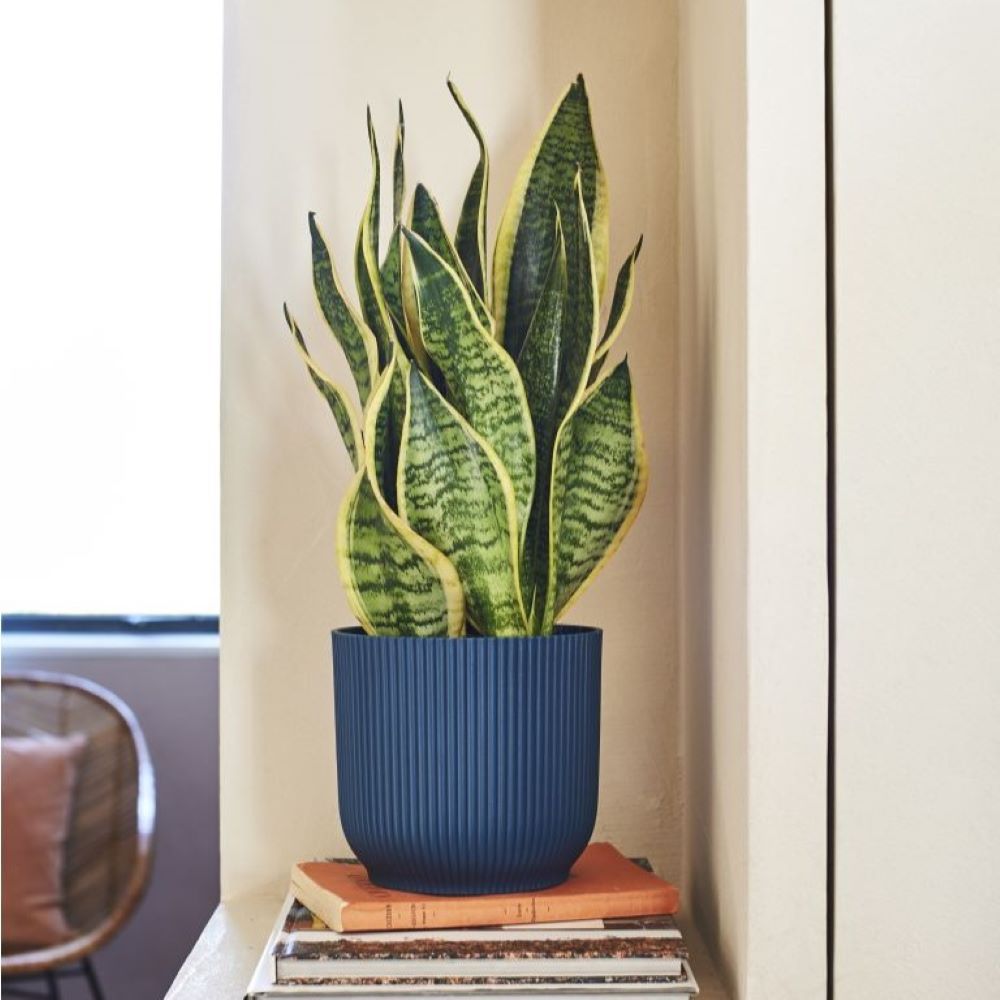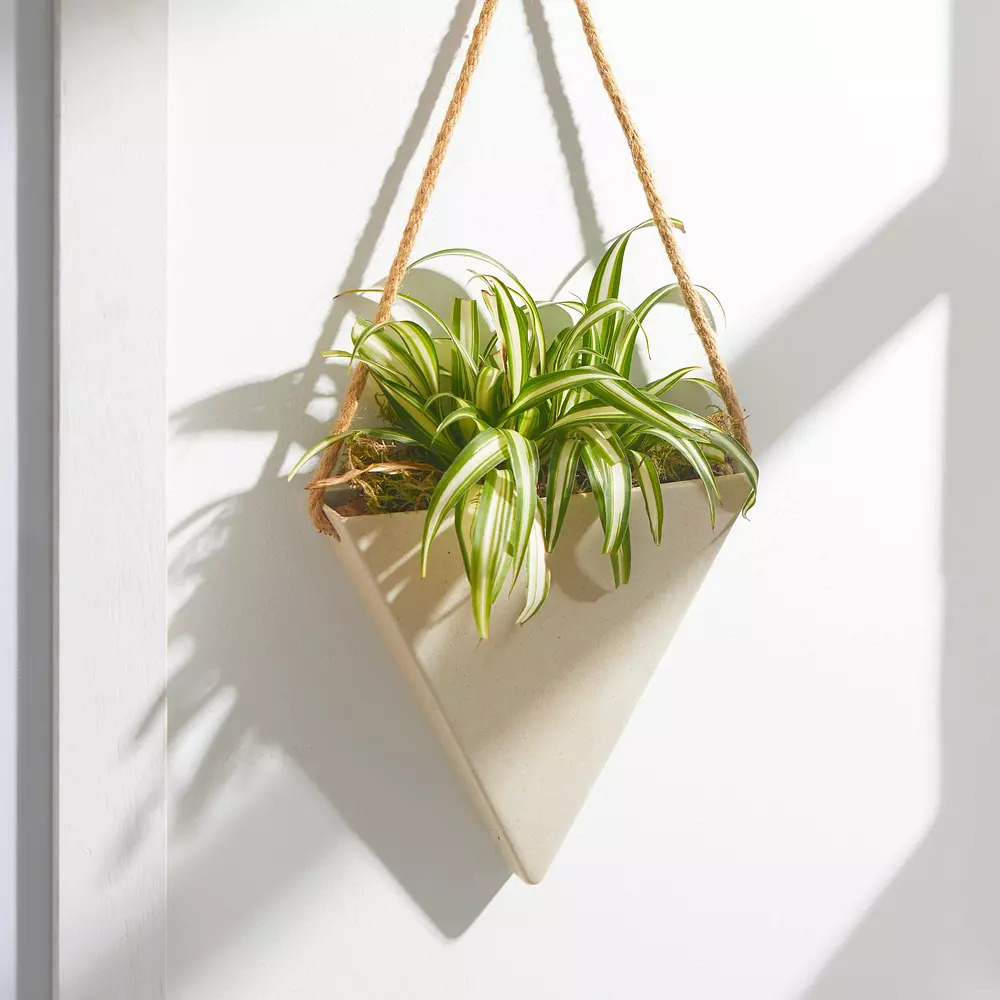The best houseplants to boost productivity - 6 researched-back plants that will help you work better
From purifying the air to boosting energy, these remarkable plants have been shown to increase productivity

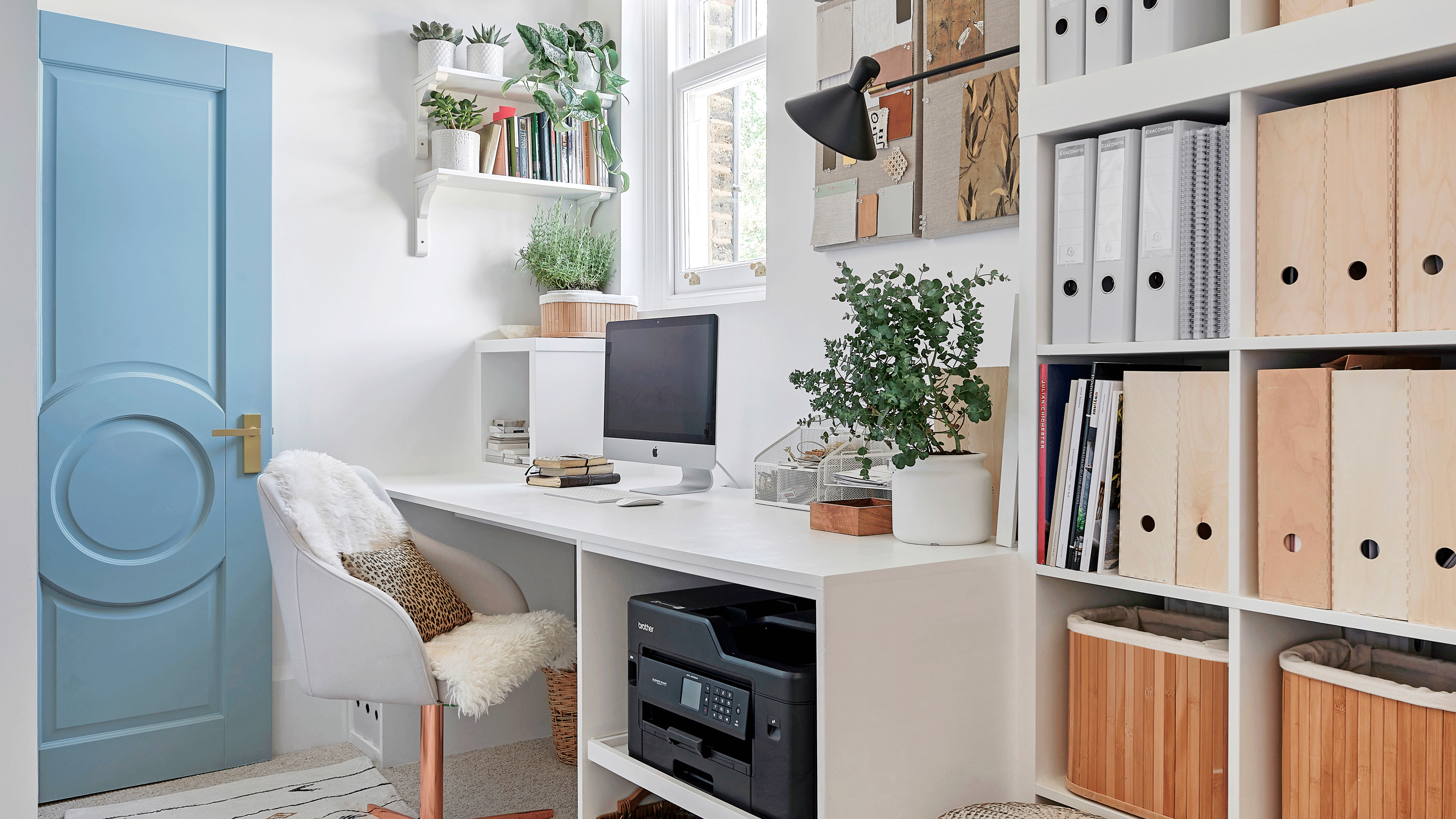

Whether you're already a passionate plant parent or you're thinking of purchasing your first plant, houseplants are a wonderful addition to our interiors. But there's a wider range of benefits houseplants can offer us that go beyond their visual appeal, and one such benefit is better productivity.
There is some scepticism about the impact of houseplant ideas on productivity, and it's understandable - how can a plant have the power to make us work better after all? But, there's actually a lot of concrete evidence which goes a long way in strengthening the link between houseplants and productivity.
'Numerous studies into environmental psychology have shown that nature can trigger improved creative problem-solving skills and productivity by up to 15%,' says Suzie Woolley, Head of Product, Seranata Flowers. 'Attention recovery theory proposes that the natural environment enables people to concentrate better, whilst practical reasons such as plants being sound absorbers suggest that plants in workplaces can help filter out background noise, therefore increasing productivity.'
Not that we needed another excuse to invest in more houseplants. But just like there are certain plants that improve well-being, some plants are especially talented when it comes to boosting productivity, and deserve a spot in your home office ideas.
The best houseplants to boost productivity
'A short, 3-week case study in an office building in Reading showed that office workers report being more productive and creative when plants are present,' says Dr Tijana Blanusa, a Principal Horticultural Scientist at RHS.
Dr Tijana was part of the research team for this study, which found that introducing plants into offices had significantly positive effects on occupants’ perceived attention, creativity and productivity. On the other hand, removing plants from the environment elicited significantly negative effects on attention, productivity and efficiency.
'Even in longer-term studies, presence of office plants reduced workers’ complaints about dry air, and gave occupants greater sense of privacy, increased attractiveness of and satisfaction with the workspaces,' Dr Tijana says.
Sign up to our newsletter for style inspiration, real homes, project and garden advice and shopping know-how
What are the best houseplants for productivity?
Houseplants can improve our productivity for a number of reasons, from purifying the air and reducing humidity, to relieving stress and helping us stay calm. Studies have confirmed the link between houseplants and productivity, but which varieties should we be looking at if we want to work better at home?
'Studies have shown that large, rounded, leafy plants have the biggest impact, but some plants offer stronger productivity-boosting properties than others,' says Patty Willems from sustainable plant pot creator elho.
So we could know more about the power of these leafy greens, we spoke to horticulture experts about the best houseplants for productivity. And by productivity, we mean energy-boosting and motivating, whether that's for ticking household chores off the list or more efficient work from home days.
1. Calathea
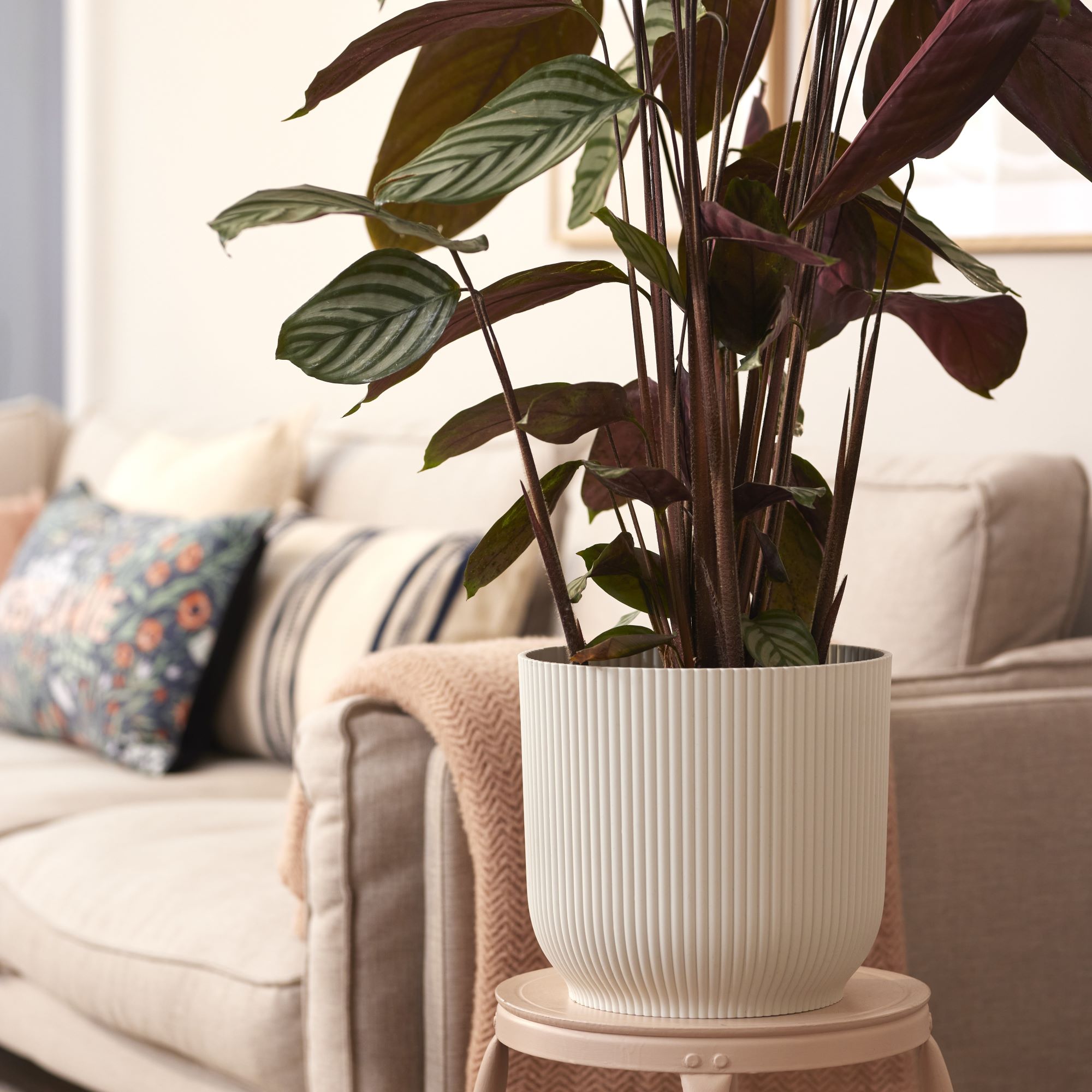
The deep green foliage and purple tones of calatheas create a striking impact in any room, but it's one to add to your home office desk ideas as experts say its air-purifying qualities make it ideal for boosting productivity.
'Alongside their beauty, calatheas' ability to purify the air and remove harmful toxins from our homes helps to create a healthier indoor environment,' Patty from elho explains. 'Cleaner air can result in better focus, reduced headaches and improved overall wellbeing!'
And if you have furry friends, the good news is that calatheas are pet-friendly houseplants too.
2. Snake Plant

Just like the calathea, snake plants are renown for their air-purifying abilities, which is what makes this spikey friend one of the best plants for the bedroom too. 'The snake plant removes toxins like formaldehyde, benzene and xylene from the air,' explains Suzie from Seranata Flowers.
In this way, the snake plant is one of the best houseplants for productivity, as cleaner air has been shown to improve cognitive function, or reduce the 'brain fog' that can really hinder our ability to perform well in our daily tasks.
An added bonus is that caring for snake plants is really simple. They're happy with a drink once a fortnight and low-light conditions.
3. Devil's Ivy
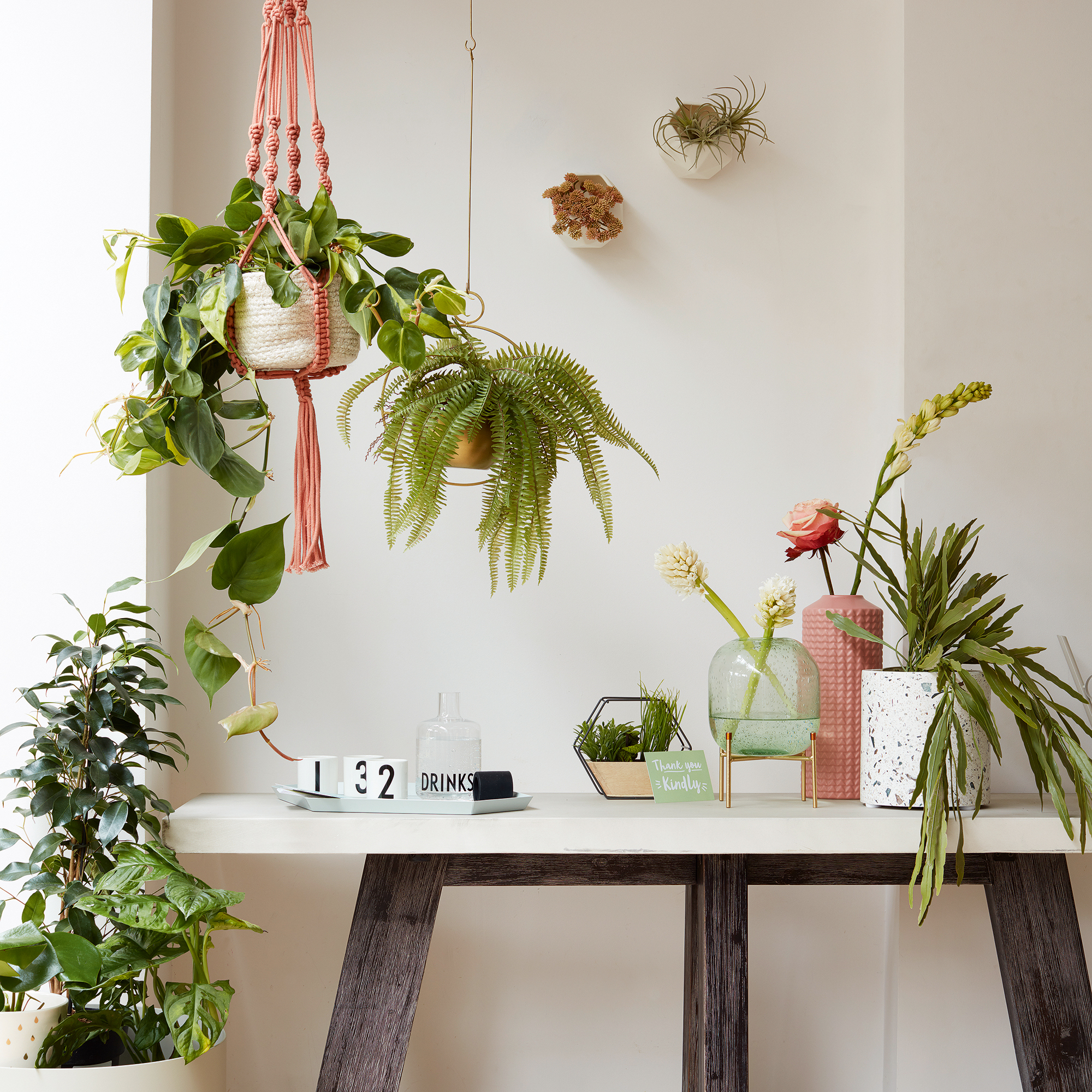
'Also known as pothos, devil's ivy is a gorgeous vine plant that can contribute to a healthier, more pleasant and productive work environment,' Patty from elho says. 'It has the power to purify the air, reduce stress and lift your mood, making it a must-have in your workspace.'
Devil's Ivy is a wise addition to any room that you want to increase productivity levels in because its cascading foliage can induce a calming response, which helps us keep stress at bay and think more clearly. And again, experts make the link between air purification and productivity, because cleaner air means a clearer mind.
Pothos is also one of the fastest-growing houseplants too, so you won't have to wait long to start experiencing its benefits,
4. Spider Plant
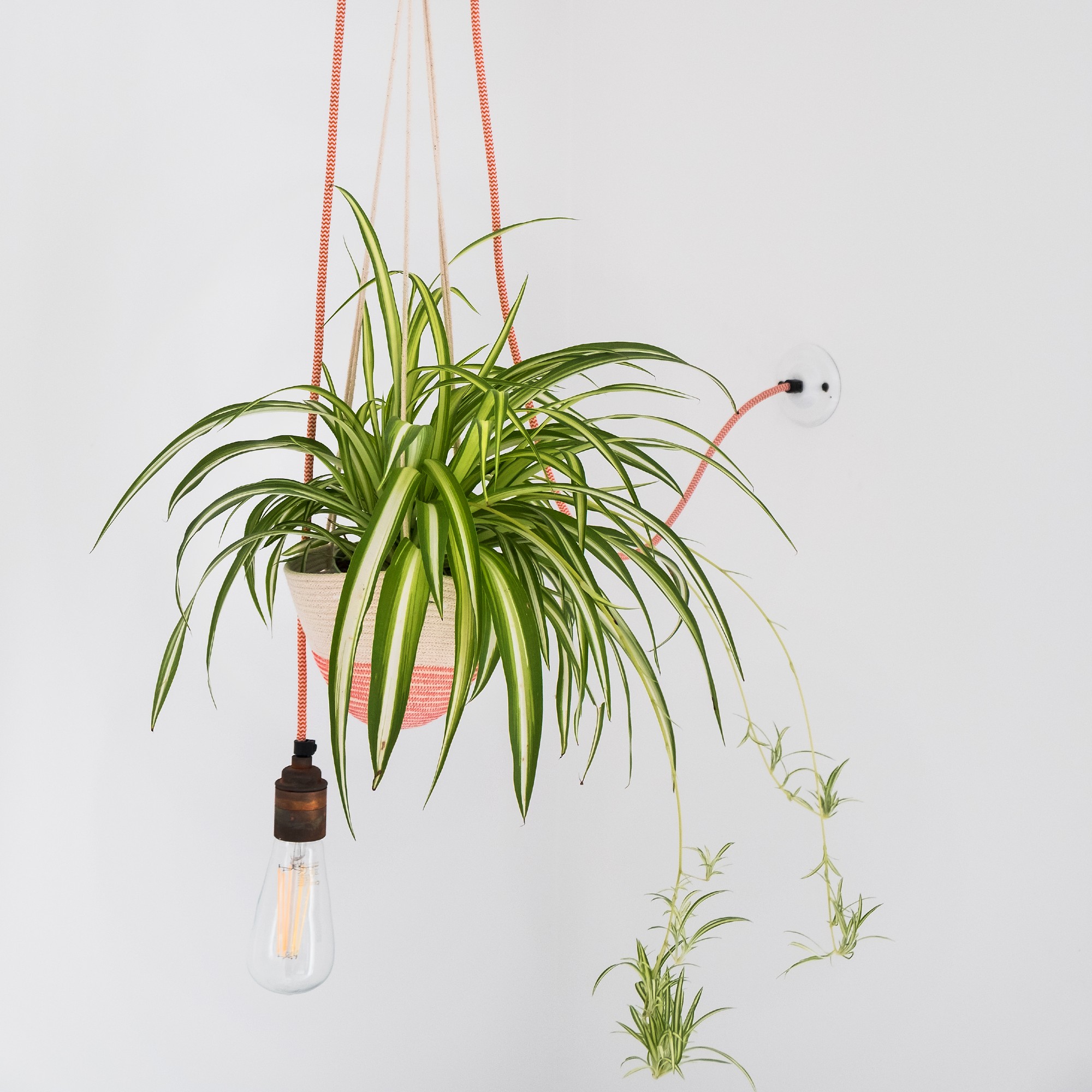
Born of the same family as the snake plant - the Araceae family - the spider plant is another one of the best houseplants for productivity, again because of its ability to cleanse the external environment.
'The spider plant offers similar benefits to the snake plant and acts as an excellent air purifier, removing pollutants in a similar fashion,' says Suzie from Seranata Flowers.
Pop a spider plant in your room and you'll start to notice a difference in how the air around you feels, which should make you more inclined to think and work efficiently. You can learn how to grow spider plant babies easily, and enjoy an abundance of trailing leaves around your home.
5. Lady Palm
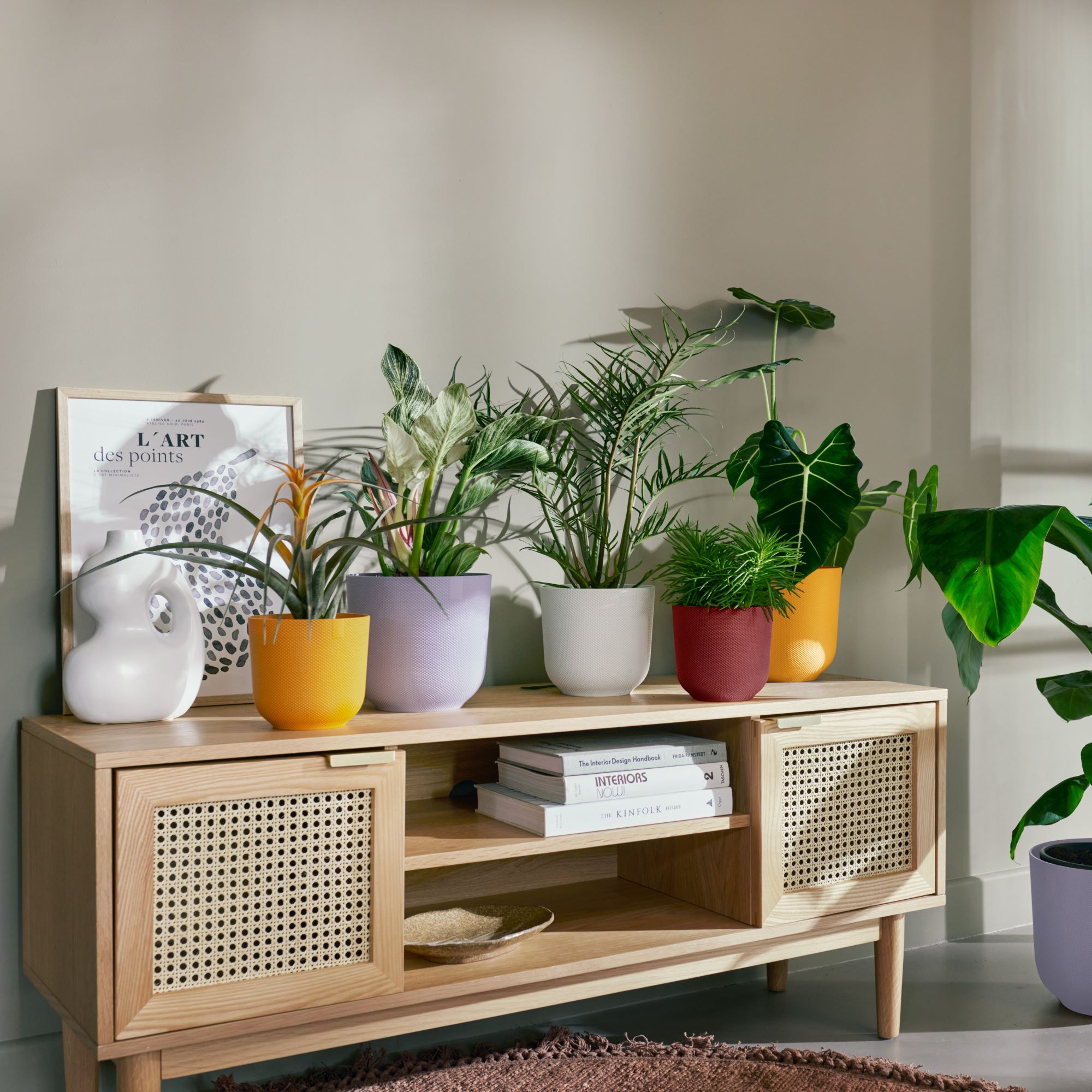
The lady palm - or rhapis excelsa - can have a remarkable effect on indoor humidity levels, which experts say make it one of the best houseplants for productivity.
'Palms naturally release moisture into the air which helps to regulate indoor humidity levels,' Patty Williams says. 'Having comfortable levels of humidity can improve comfort and respiratory health, and reduce the likelihood of fatigue – therefore encouraging productivity.'
You're more likely to feel motivated and energised with a potted lady palm around. The gorgeous array of green leaves will make a wonderful addition to your interiors too.
6. Jasmine
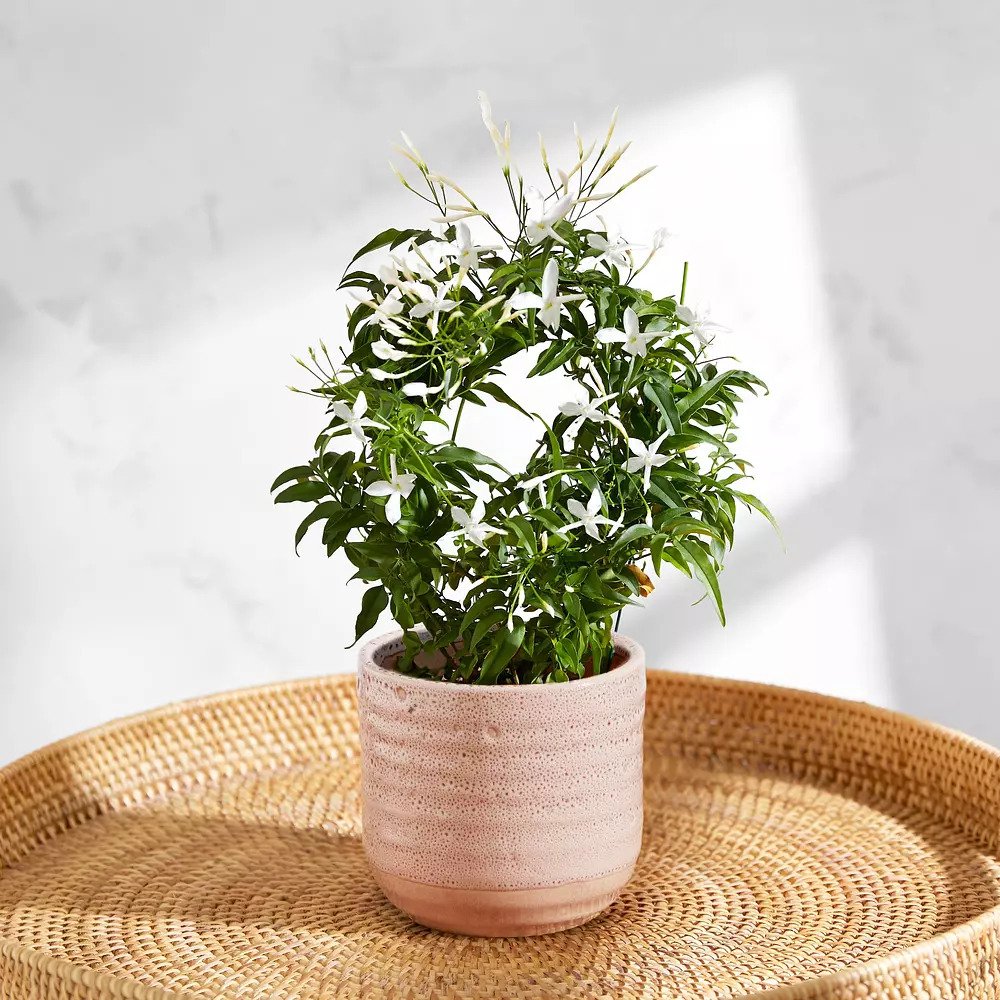
Jasmine is a firm favourite among houseplant enthusiasts, as its sprouting white flowers contrast beautifully with its small green leaves. But its the fragrance of this plant that is truly remarkable. Experts say the aroma of a jasmine plant can revitalise and give us a motivational boost.
'This elegant and blissful plant is not only pleasing to look at, but it offers a natural way to boost your mood at work and home,' says Patty. 'It's fragrant aroma and vibrant green leaves create a thriving and calm environment, so while it’s working hard to keep the air smelling fresh, your interiors get a natural uplift too, along with your mood!'
You'll need to know how to care for a jasmine plant to experience the full benefits, but it's relatively straightforward and well worth the upkeep.
FAQs
What indoor plants help with fatigue?
Fatigue is a big culprit for decreased productivity levels, so it's helpful to know which houseplants can help to combat this. Experts point towards plant varieties that decrease humidity levels as the best for helping reduce feelings of fatigue, such as spider plants, snake plants, and lady palms.
These are some of the best houseplants for reducing condensation and damp because of their ability to absorb moisture from the air. Less moisture in the atmosphere is going to have a positive impact on our energy levels, as it means we can breathe a little deeper and feel more vitality as a result. It's difficult to be productive in a high humidity environment, which is why the experts recommend houseplants with moisture-absorbing capabilities to combat fatigue.
Which are the best indoor plants for positive energy?
In general, all houseplants are a great way to bring more positive energy into the home, because of their ability to make us feel more connected with nature, which research shows is ideal for reducing stress. But the experts say that plants with rounded leaves are the best when it comes to promoting positive wellbeing.
'A recent study investigating the perceptions of over 500 participants showed that lush and rounded/spherical plant canopies elicited more positive effects on perceived wellbeing,' says Dr Tijana from RHS. 'The same study also found that our positive feelings then also spill into perceiving the plant’s value for improving the room air quality.'
Plants such as calathea and devil's ivy can boost our mood and energy levels because of their ability to cleanse our environment. Asparagus ferns also have deep-rooted spiritual connotations of growth, protection, and positive wellbeing, making them a great choice for the home.
Who knew that the best houseplants for productivity could have such an uplifting impact on our mood? Try adding one from our list to your home and see if it helps you work better going forward.

Katie has been writing freelance since early 2022, specialising in all things homes and gardens, following achieving a Masters in Media and Journalism. She started out writing e-commerce content for several of Future’s interior titles, including Real Homes, Gardeningetc, Livingetc, and Homes and Gardens. Since then she’s been a regular contributor on Ideal Home’s digital team, covering news topics, how-to guides, and product reviews.
